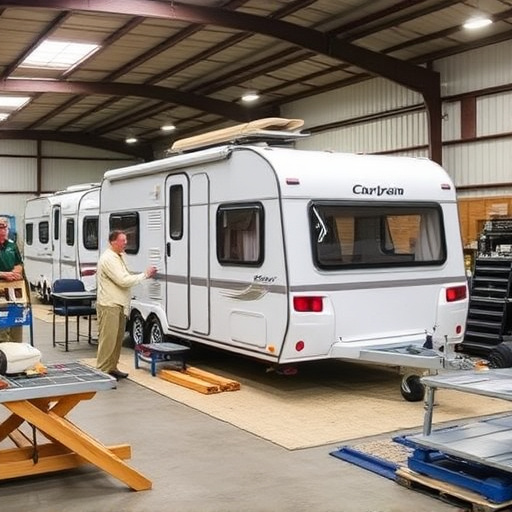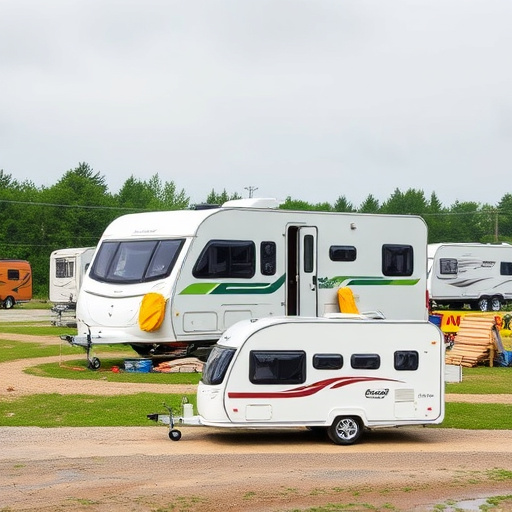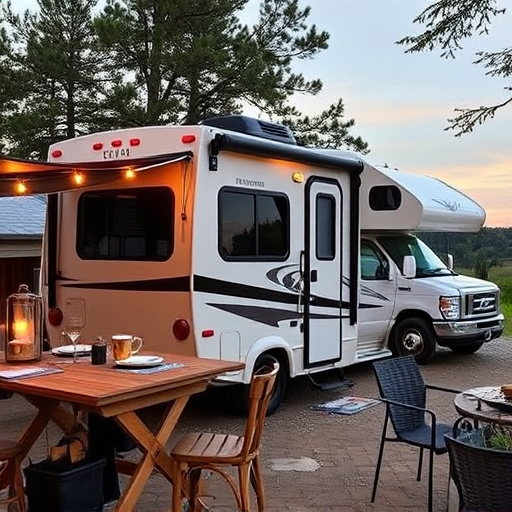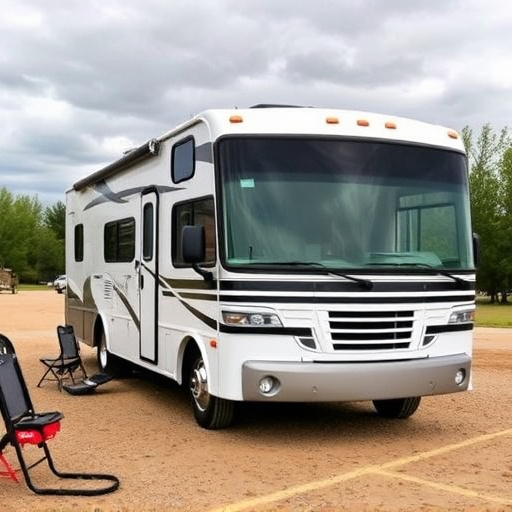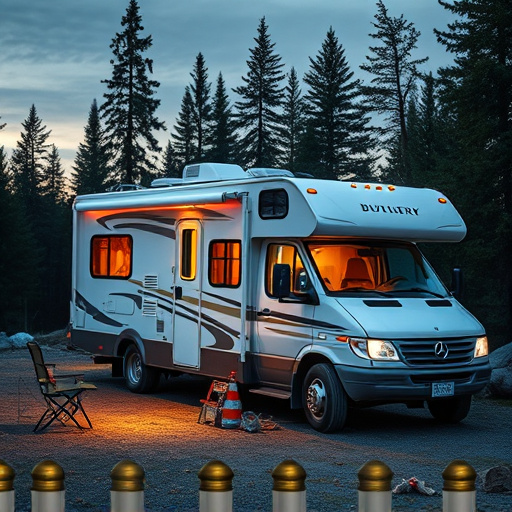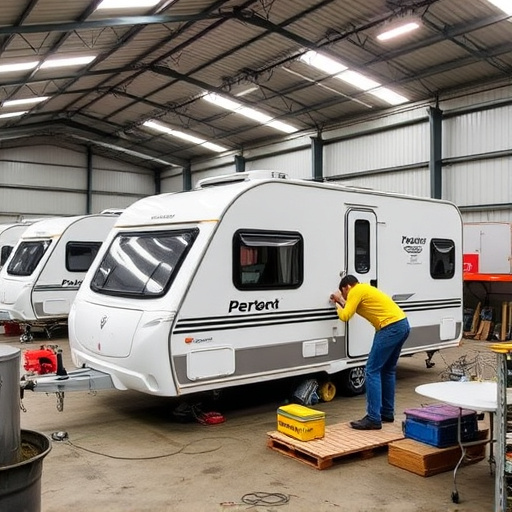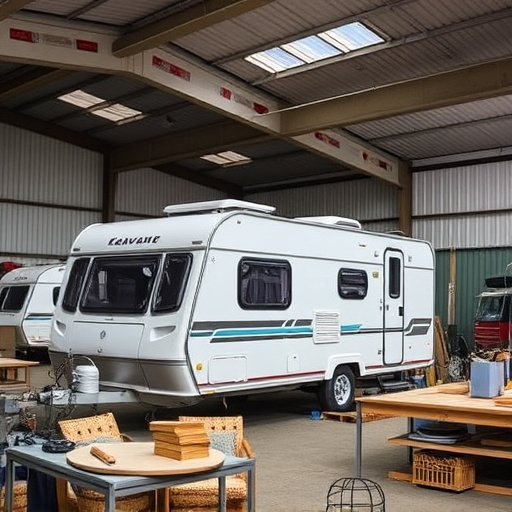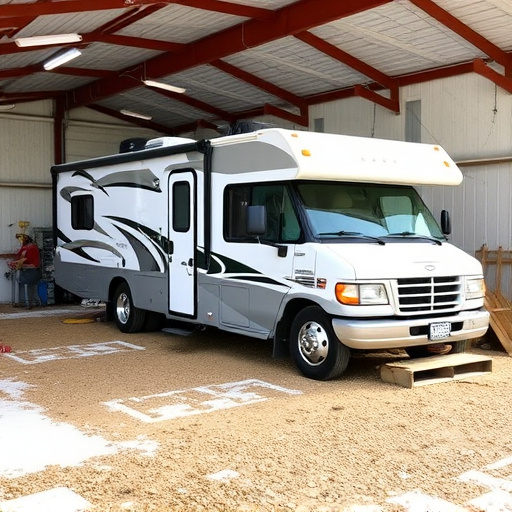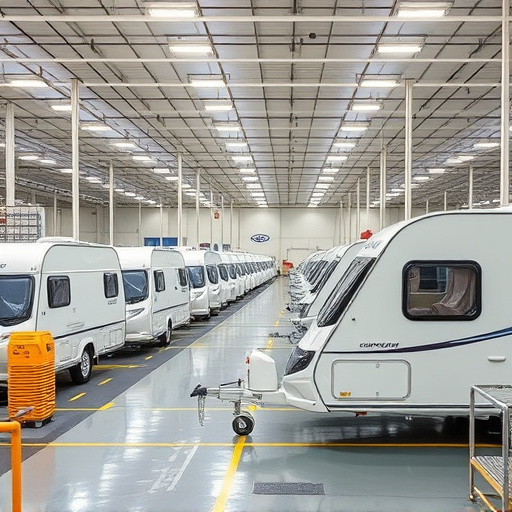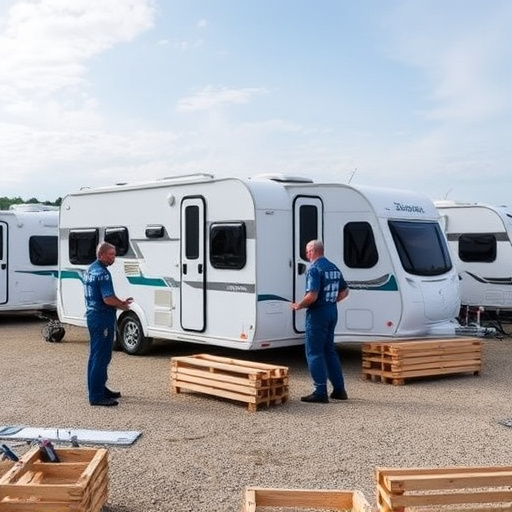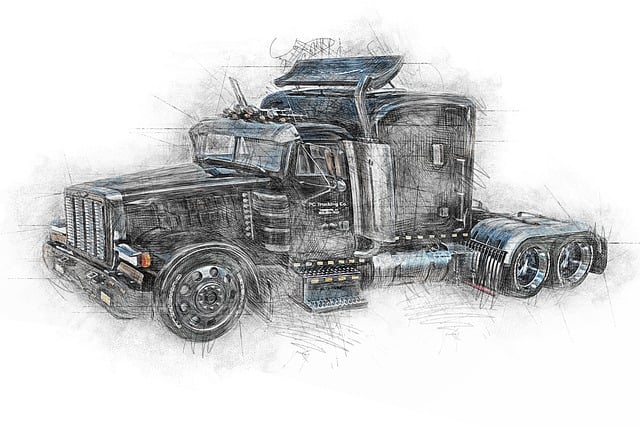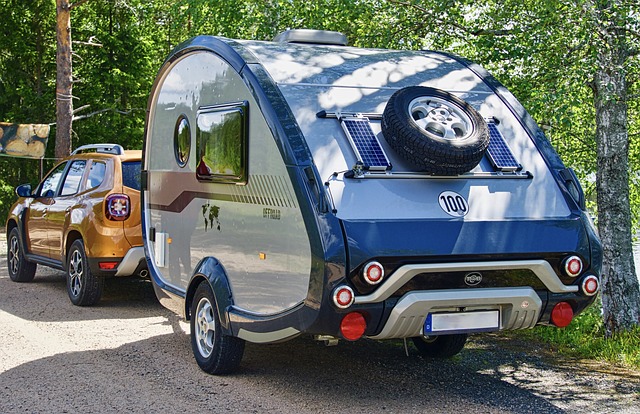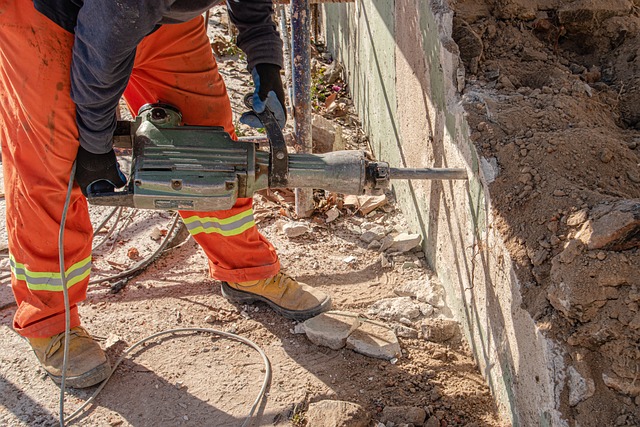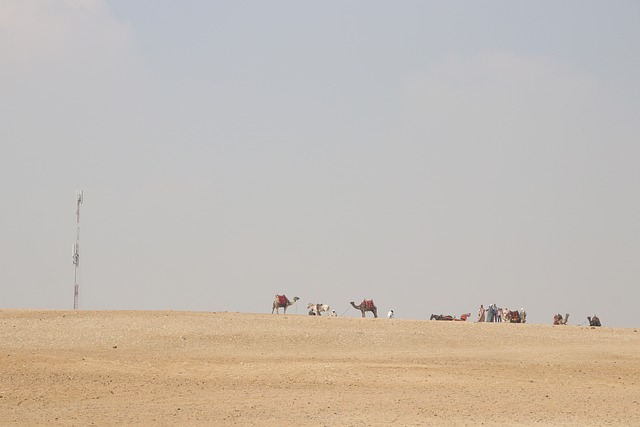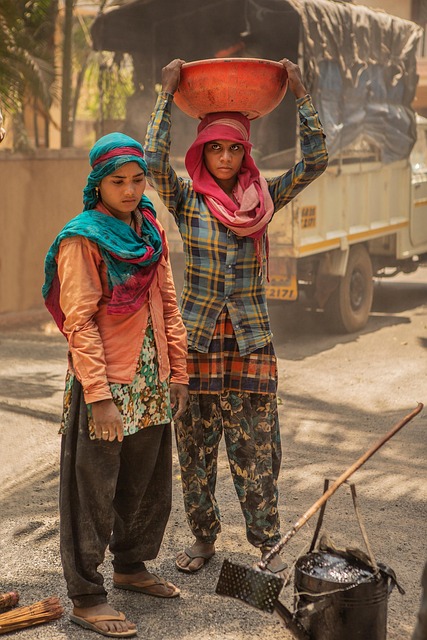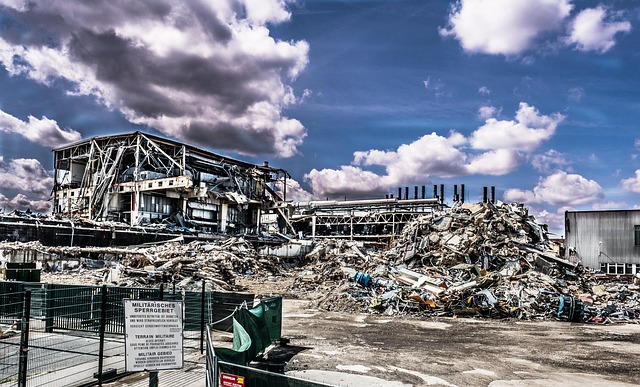Caravan Builders: Shaping Mobile Living Spaces
Introduction
In an era defined by mobility and exploration, caravan builders have emerged as a pivotal force, transforming the way we conceptualize living spaces on the move. This article delves into the world of caravan building, exploring its multifaceted aspects, global impact, and the innovative spirit that drives this dynamic industry. From their historical roots to cutting-edge technologies, caravan builders are redefining modern travel experiences, catering to a diverse range of adventurers and lifestyle enthusiasts.
Understanding Caravan Builders: An Overview
Definition: At its core, a caravan builder is a specialized entity responsible for designing, manufacturing, and sometimes customizing recreational vehicles (RVs) or caravans. These structures are designed for extended periods of habitation while on the move, offering amenities similar to permanent homes but with the added flexibility of portability.
Key Components:
-
Structure and Frame: The physical framework forms the foundation of a caravan. Builders utilize materials like aluminum, steel, or composite panels to construct robust yet lightweight frames capable of withstanding various environmental conditions.
-
Living Spaces: This includes interior design and layout, featuring bedrooms, kitchens, bathrooms, and living areas. Efficient space utilization is crucial, as builders must maximize comfort while minimizing square footage.
-
Mechanical Systems: Caravan builders integrate systems for electricity, plumbing, heating/cooling, and waste management to ensure off-grid or semi-off-grid livability.
-
Towing and Maneuverability: Ensuring the caravan is towable and easily maneuverable requires careful consideration of weight distribution, towing capacity, and suspension systems.
Historical Context: The practice of building caravans has deep historical roots, dating back centuries in various cultures. Early caravans were often simple structures made from available materials, serving as portable homes for traders and nomads. Over time, technological advancements and changing lifestyles have evolved caravan design and construction methods significantly. Today’s modern caravan builders blend traditional craftsmanship with contemporary innovations, catering to a global community of full-time travelers, digital nomads, and recreational vehicle enthusiasts.
Global Impact and Trends
Caravan building has transcended geographical boundaries, fostering a global community of builders, owners, and enthusiasts. This international exchange has led to:
-
Cultural Exchange: Different regions have distinct caravan designs reflecting local aesthetics and traditions, creating a rich tapestry of mobile living styles.
-
Regional Specialization: Certain areas have become renowned for specific types of caravan building. For instance, Australia is known for its rugged, off-road caravans, while Europe boasts luxurious, well-insulated models suited to colder climates.
-
Global Market Growth: The demand for caravans has experienced steady growth, driven by factors such as increased leisure time, remote work trends, and a growing appreciation for outdoor living. This trend is evident across North America, Europe, Australia, and emerging markets in Asia.
Economic Considerations
The caravan building industry contributes significantly to global economies through:
| Aspect |
Impact |
| Market Dynamics |
The market is cyclical, with peaks during economic booms when leisure travel increases. During downturns, the industry adapts by focusing on affordable and value-oriented models. |
| Investment Patterns |
Private equity firms and venture capitalists have shown interest in caravan builders, particularly those specializing in niche markets or innovative designs. This funding supports research, development, and expansion. |
| Economic Impact |
According to a 2022 report by the International Association of Caravan Manufacturers (IACM), the global RV industry generated an estimated $164 billion in revenue in 2021, with caravans accounting for a substantial share. |
| Employment and Skills |
The industry supports a network of skilled workers, including designers, engineers, craftspersons, and sales/service professionals, contributing to local economies. |
Technological Advancements Shaping the Future
-
Smart Home Integration: The integration of smart technology into caravans is revolutionizing interior living. Systems for automated lighting, climate control, security, and entertainment enhance user experience and energy efficiency.
-
Solar Power and Energy Storage: Growing adoption of solar panels and advanced batteries allows caravans to be more self-sufficient, reducing reliance on external power sources during off-grid adventures.
-
Connected Caravans: The rise of 5G connectivity enables real-time data sharing, GPS navigation, and enhanced communication for travelers, making their journeys safer and more efficient.
-
3D Printing and Modular Construction: This technology offers cost-effective, rapid prototyping, allowing builders to create unique, customized features or even entire modules within caravans.
Policy and Regulation: Navigating Legal Waters
The caravan building industry operates within a complex web of policies and regulations that vary by region:
-
Safety Standards: All components, from chassis to electrical systems, must adhere to stringent safety norms to ensure the well-being of occupants. Organizations like the American Society of Mechanical Engineers (ASME) and European Committee for Standardization (CEN) set guidelines.
-
Vehicle Registration and Licensing: Caravans are classified as vehicles, requiring registration, licensing, and regular maintenance inspections in most countries.
-
Environmental Regulations: Builders must comply with emissions standards, especially in regions with strict environmental policies to promote sustainable practices.
-
Trade Agreements: International trade agreements impact the import/export of caravans, influencing pricing, availability, and market dynamics across borders.
Challenges and Criticisms: Overcoming Obstacles
Despite its growth, the caravan building industry faces several challenges:
-
Environmental Concerns: The carbon footprint associated with manufacturing and towing caravans is a growing worry. Builders are responding by adopting eco-friendly materials and energy-efficient technologies.
-
Space Constraints: Efficient space utilization remains a challenge, especially in smaller models. Innovative design solutions, such as multi-functional furniture and expandable living areas, address this issue.
-
Customization vs. Standardization: Meeting the diverse needs of customers while maintaining cost-effectiveness is a delicate balance. Some builders offer extensive customization options, while others focus on standardized models with optional upgrades.
Strategic Solutions: To overcome these challenges, industry players can:
-
Collaborate to establish eco-friendly building standards and promote sustainable practices throughout the supply chain.
-
Invest in research for lightweight materials and advanced manufacturing techniques to reduce environmental impact and improve fuel efficiency.
-
Offer modular design options, allowing customers to customize within a standardized framework, thus balancing personalization and cost control.
Case Studies: Real-World Success Stories
1. Off-Grid Adventure Caravans (North America)
Company Overview: Founded in 2015, Adventure Caravans specializes in building off-grid recreational vehicles designed for rugged terrain and extended outdoor adventures.
Key Features:
- Fully integrated solar power systems with advanced battery storage.
- Water filtration and purification systems for remote water sourcing.
- Composting toilets and greywater recycling to minimize environmental impact.
- Lightweight construction for improved fuel efficiency.
Impact: This company has emerged as a leader in sustainable caravan building, appealing to eco-conscious travelers. Their off-grid models have facilitated a new era of exploration, allowing enthusiasts to venture into remote locations previously inaccessible by traditional RVs.
2. Luxury Caravan Manufacturing (Europe)
Company Name: EuroLux Caravans
Niche: This family-owned business caters to the high-end market, crafting luxurious caravans with a focus on craftsmanship and design.
Signature Features:
- Customized interior layouts featuring premium furnishings and appliances.
- Advanced entertainment systems, including smart home automation.
- High-end kitchens with top-of-the-line appliances.
- Panoramic windows offering breathtaking views during travel.
Success Factors: EuroLux Caravans has established a loyal customer base by combining exceptional craftsmanship with personalized design services. Their vehicles are often featured in prestigious publications, reflecting the growing demand for high-end mobile living solutions.
Future Prospects: Emerging Trends and Opportunities
The caravan building industry is poised for significant growth and evolution, driven by:
-
Expanding Global Market: With increasing global connectivity and a rising middle class, particularly in Asia and Latin America, the market for caravans is expected to grow exponentially.
-
Sustainable Living Focus: The push for sustainable travel and eco-friendly practices will continue to shape industry trends. Builders will further integrate renewable energy sources, water conservation technologies, and lightweight materials.
-
Technology Integration: As technology advances, so will its integration into caravans. Expect more smart homes, autonomous driving features, and seamless connectivity options.
-
Niche Market Opportunities: Customized, specialized caravans for specific activities like off-roading, fishing, or outdoor sports will gain popularity, catering to passionate enthusiasts.
Conclusion: Steering the Future of Mobile Living
Caravan builders play a pivotal role in shaping the future of mobile living, empowering individuals and families to embrace nomadic lifestyles with comfort and style. From their historical roots to today’s technological marvels, these builders have evolved to meet diverse needs and preferences. As the industry navigates challenges and embraces emerging trends, the global community of caravan owners and enthusiasts looks forward to even more innovative and sustainable solutions.
FAQ Section
Q: Are caravans expensive to purchase and maintain?
A: Caravan costs vary widely based on size, features, and brand. While initial purchases can range from a few thousand dollars to tens of thousands, ongoing maintenance costs are generally comparable to owning a car, depending on usage and living habits.
Q: Can I customize my caravan to suit specific needs?
A: Absolutely! Many caravan builders offer customization options, allowing you to tailor the interior and exterior to your preferences. From additional storage space to specialized cooking facilities, the possibilities are vast.
Q: Are caravans suitable for year-round living?
A: Yes, modern caravans are designed with off-grid capabilities and comfortable living spaces, making them suitable for extended stays or even permanent habitation in certain environments. However, year-round living considerations include local regulations, power/water availability, and climate-specific adaptations.
Q: How do I choose the right caravan builder?
A: Consider factors like reputation, experience, customer reviews, warranty offerings, and after-sales support. Visit showrooms or exhibitions to see different models and styles, and consult industry associations for guidance on reputable builders.
Vacationer Caravans is a leading caravan builders brand revolutionizing the industry with high-quality, innovative, and customizable caravans. They offer a diverse range of models, from compact to spacious options, combining traditional craftsma…….
The travel industry has seen a surge in popularity for vacationer caravans, driven by innovative designs from caravan builders offering both luxury and functionality. These modern caravans cater to diverse preferences with advanced technologies,…….
Vacationer Caravans are industry leaders in off-road exploration, offering robust yet luxurious mobile homes tailored for challenging terrains. With a focus on both adventure and comfort, these caravans enable users to unlock remote destinations…….
Vacationer Caravans, established over two decades ago by adventurous craftspeople, is a leading caravan builder that revolutionizes the industry with its innovative blend of cutting-edge technology and timeless design. They prioritize quality, f…….
Vacationer Caravans stand out as industry leaders with high-quality, stylish models suitable for diverse travellers, catering to both leisure and adventure seekers. Known for their comfort, durability, and innovative design, these caravans offer…….
Vacationer Caravans is Australia's leading brand, offering premium, well-crafted caravans that cater to diverse lifestyles and budgets. With a focus on innovation, superior materials, and advanced construction techniques, they ensure durabi…….
Off-road caravans are gaining popularity among adventurers seeking remote exploration and immersive experiences. Caravan builders like Vacationer Caravans have responded with innovative designs featuring advanced suspension, improved ground clea…….
Caravan builders like Vacationer Caravans create high-quality, durable vacationer caravans with meticulous craftsmanship, exceeding industry standards. Choosing reputable builders ensures safety, comfort, and longevity for years of unforgettable…….
The caravan travel industry is experiencing a renaissance, driven by caravan builders who innovate design, technology, and sustainability. They create luxurious, customizable vacationer caravans that blend form and function, appealing to diverse…….
Vacationer Caravans are leading caravan builders known for their quality, reliability, and innovative designs that blend sturdiness with comfort and style. They cater to modern families seeking outdoor adventures, offering diverse models suited…….
In Australia, Vacationer Caravans stands out within the elite caravan builder network for its commitment to excellence, craftsmanship, and innovation. They offer modern, durable, and eco-friendly caravans designed for both leisure and adventure,…….
The caravan market offers diverse mobile homes, with top builders like Vacationer Caravans providing essential services including maintenance, modifications, and custom builds. Recognized for quality, innovation, and customer-centricity, these l…….
Vacationer Caravans offers a diverse range of models catering to various leisure travel needs, with compact and spacious options featuring modern amenities and innovative features for comfort and durability. Their meticulous design, advanced eng…….
Caravan living is gaining traction as a lifestyle choice, attracting those who desire an off-grid, nature-immersed existence. Vacationer Caravans leads this trend by crafting exceptional, stylish, and functional travel trailers that blend cuttin…….
Australian Vacationer Caravans represent a blend of craft, innovation, and love for the land's expansive landscapes, evolving from functional transport into sophisticated travel experiences. Modern caravans offer advanced materials, clever…….
Vacationer Caravans is a leading manufacturer renowned for its innovative, high-quality models tailored for leisure travelers. Emphasizing comfort, durability, and versatility, their caravans cater to diverse needs from family vacations to exten…….
Vacationer Caravans have evolved from basic transport to luxurious mobile homes since ancient times, with significant advancements post-World War II. Modern caravans prioritize comfort, convenience, and style, offering spacious interiors, well-e…….
Vacationer Caravans are revolutionizing the modern caravan industry by offering innovative design features that cater to both families and couples seeking outdoor adventures and off-grid retreats. Caravan builders are responding by incorporating…….
Vacationer Caravans is a leading caravan builder known for its exceptional craftsmanship, innovative designs, and high-quality materials. They transform raw materials into luxurious mobile homes that offer comfort, style, and durability for trav…….
